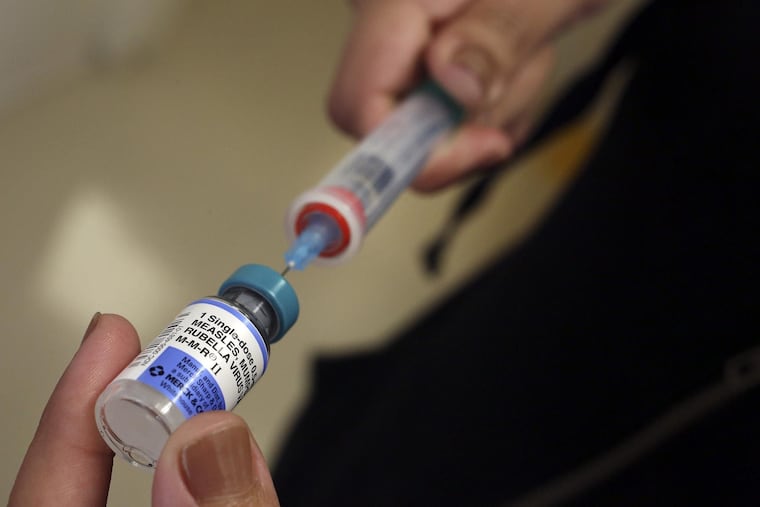Pew Center finds most Americans support vaccinating kids for measles
Despite growing controversy, study says most Americans support vaccinating kids

The vast majority of Americans continue to believe that the benefits of the measles, mumps and rubella (MMR) vaccine outweigh any risks it may present — and that those risks are low, according to a new study by the Pew Research Center.
In addition, the survey results, released Tuesday, indicate that a growing percentage of people consider immunizations’ power to prevent serious illness to be very high.
The findings come at a time of increased measles outbreaks in the United States and abroad, as well as an increase of opponents who are questioning the safety of vaccines, and those who think that parents should be able to decide which vaccines their kids get.
“There’s an ongoing concern in the public health community about the rise of measles cases in the U.S.,” said Cary Funk, the center’s director of science and society research.
According to Pew, 88% of U.S. adults say the benefits of the MMR vaccine surpass any risks it may have — the same percentage as the last survey in 2016. The share of people who consider the health benefits of the vaccine to be “very high” grew over the last three years from 45% to 56%.
In addition, 69% of those surveyed consider the risks of side effects from the vaccine to be low or very low.
The findings were based on a web survey conducted in October among 3,627 U.S. adults.
For the most part, the Pew researchers found strong support for vaccinating schoolchildren. According to the results, 82% of Americans said the MMR vaccine should be required for public school attendance. However, 16% felt parents should be able to decide whether their children are immunized even if their failure to vaccinate might create health risks for others.
» READ MORE: Should doctors be required to treat unvaccinated kids?
Allowing vaccine exemptions for schoolchildren is a hot topic locally and nationally. The New Jersey Senate last month tabled a vote on a bill that could have done away with religious exemptions when it seemed there weren’t enough votes to pass the bill. The measure may come up again this month.
A study last year by the New Jersey Hospital Association found that religious vaccination exemptions for children rose 53% in the past five years, despite the fact that leaders of virtually all major religions have advised their members to get their children immunized.
» READ MORE: Religious exemptions rise in states without personal belief exemptions
The Pew survey found that white evangelical Protestants, at 20%, were somewhat more likely to say parents should be able to decide whether their children are vaccinated, compared with 11% of mainstream Protestants.
Although the survey results show widespread support for the MMR vaccine, Pew did detect some differences depending on factors like income, education level, generation, race, and whether those surveyed had children.
For example, 93% of Americans with postgraduate degrees said they believed the vaccines’ health benefits were very high, compared with 68% support among people with a high school education or less. Among upper-income earners, 95% thought the benefits of vaccines outweighed the risks, but that support dropped to 81% among lower-income adults.
Parents of children under age 18 were somewhat less positive about the vaccine than people without children under 18. Among parents with minor children, 70% said the vaccine’s preventative health benefits were high or very high, compared with 81% of non-parents.
Support varied little along political lines. However, 26% of black adults said vaccination should be a parental decision, compared with 19% of Hispanic Americans and 13% of whites.